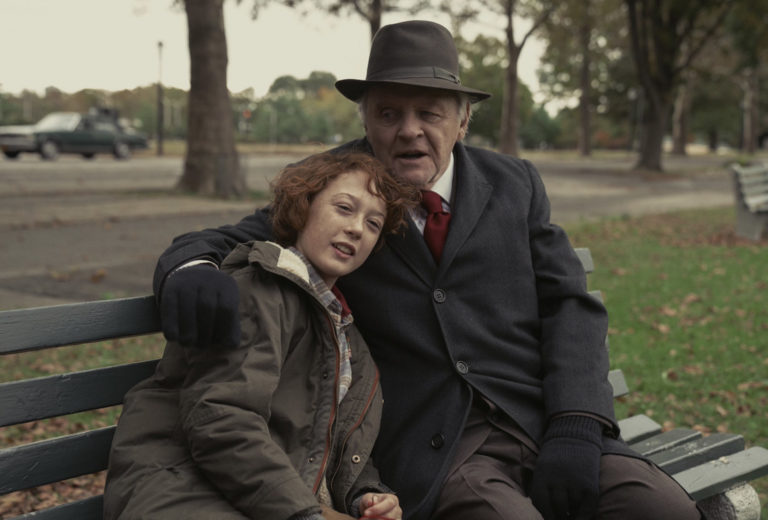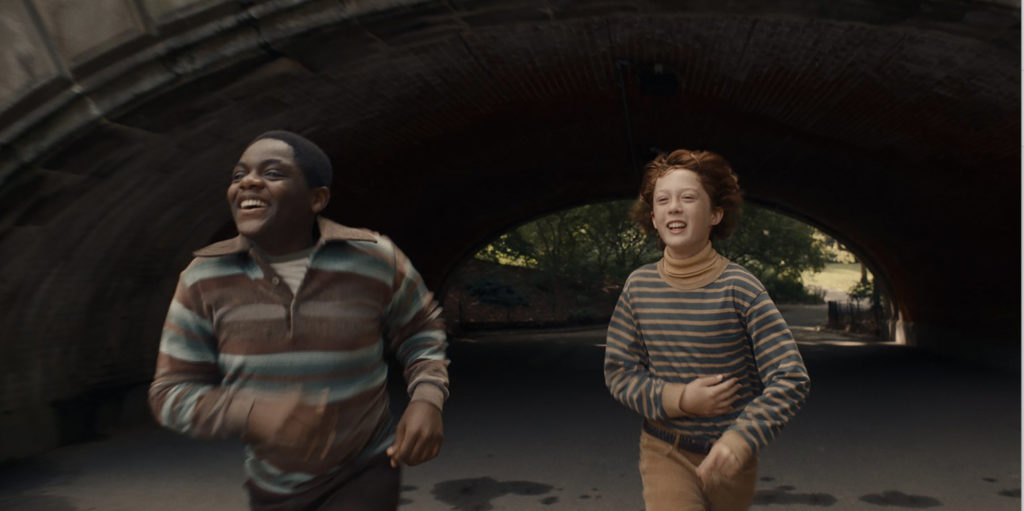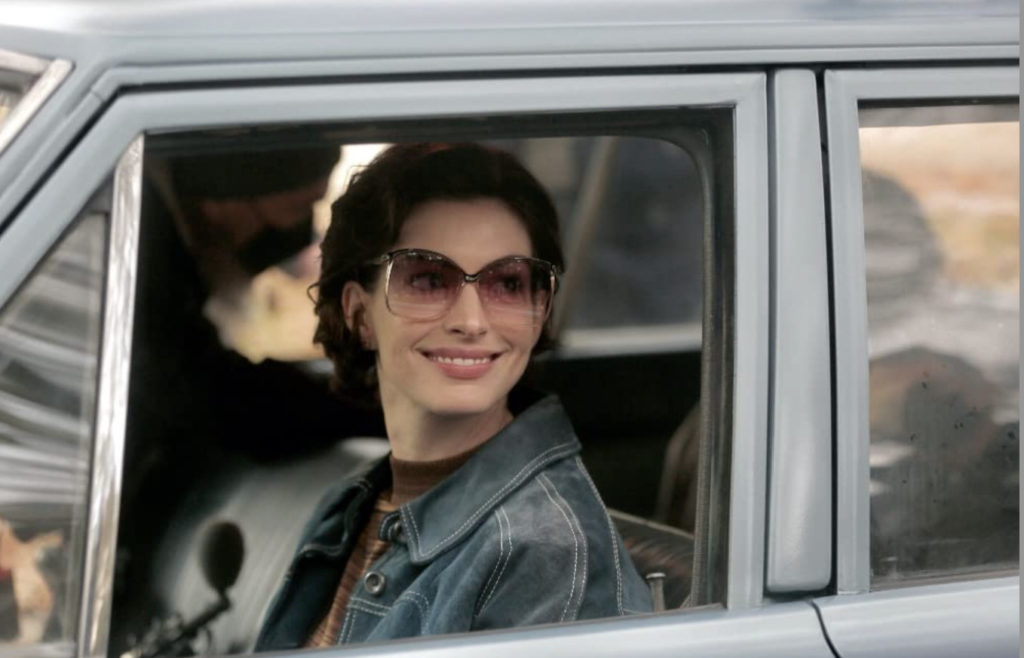
Q : I heard you both were selected out of hundreds of kids. James Gray hates Zoom talks. Could you talk about the casting process?
JW: I just got off the set of another show that I’m on, and I auditioned. At first, I didn’t want to do it, but that was just because I was really exhausted. But then I read the script, and I really felt the script drew me closer to it. So driving back from Georgia to Florida, I was going over the sides. Then I did the audition. About two weeks later, I found out that James [Gray, the director] wanted to have a director session with me. Throughout that session, James and I were going back and forth over the scenes. He had me do a couple of strange things while saying my lines. At the end of the director session, James told me that I’d be hearing from him soon. I just thought that was something that he told all the other boys who read for Johnny. But then the next day, I came home from school and my parents told me that I got it.
Q: How about you, Banks?
BR: Before I did “Armageddon Time,” I played a young Tom Holland in a movie called “The Devil of a Time.” The casting director on that movie was Douglas Aibel, who happened to be the same casting director for “Armageddon Time.” So I had a connection with him, and that’s part of the reason why I got this part. But besides that, I did the audition and got a callback. I Zoomed with James and got to play around with the script with him, and I got a feel for what I was working with.
Q: Prior to the shooting, what kind of preparation and rehearsal did you have?
JW: Before we started shooting, I had no idea of how New York worked because that was actually my first time in New York. We spoke to James, and he didn’t give us much, because we had a lot of freedom throughout shooting. But I had never experienced what Johnny experienced. Trying to connect to him, I asked my family members. I tried to get as much knowledge as I could to see how much I could relate to him. James and I played around with some of the scenes, certain scenes where the thing that Johnny faced happened, and I adjusted it to his liking afterward.
BR: Well, we had a two-week period before we started filming to get to know everybody. That’s the first time I met James in person. At that time, I had a lot of talks with him. He gave me some basic information, like what it was like in Queens, what kind of music Paul listened to, and how he was as a kid. But besides that, he made it clear that he wanted to see what I could do with Paul and how I could portray him so then there’d be more beauty and creativity to it. Then he would tweak it to his liking so he saw the Paul Graff he wanted to see.
JW: Yes, adding to that, James didn’t want Banks and I to nail it. He didn’t want us to nail it at all and try to portray these characters in a perfect way. As Banks said, he wanted to see what we could bring, and we played around with it.
BR: Not nailing it is more authentic.
JW: Right.
BR: If you nail it, that’s saying there’s only one way to do it. There’s more authenticity and creativity [not to].

Q: Banks, you had a difficult scene with the father, played by Jeremy Strong, who is hitting you in the bathroom. How did you prepare with Jeremy and James?
BR: Well, there’s a lot of safety protocols and a lot of people involved to do this scene. As Banks, I had a lot of time before we did the scene and I was preparing for it. I knew what was going to happen.
I was generally excited because I had never done anything like this, and it was nice to have this new experience. But as Paul, Jeremy made it easier for me to drop into the role and become Paul, and be scared for the scene.
Q: An old subway car was used in the film. What was it like playing in the whole subway? Talk about the experience of working together.
BR: That was one of the really great scenes, because along with the other fun places that we got to go to like Central Park and the Guggenheim, that was one of the scenes that was really nice. The whole subway was abandoned and they let us use it for this movie. It was fun, because we had the whole subway to ourselves.
JW: Yeah, it was a very different experience, something that I’d never experienced before. It was really cool being able to do all of that and experience it with so many great people.
BR: And, we saw a rat in the abandoned subway.
JW: Oh yeah, I remember.
Q: Banks, you seem to have a great chemistry with the grandfather, played by Anthony Hopkins. How did you like working with him?
Did you learn anything from him?
BR: I learned a lot of things from him. Specifically, he told me to speak clearly because it’s important if you want to be heard. We had some real chemistry, because he made me feel comfortable working around him. I got to learn a salsa dance from him. We were in between scenes. He pulled me up and we did a salsa dance together to some music, and it was great.
Q: This film covers a lot of important things, such as family history. What might apply to your family after doing this film?
BR: I learned how it was with Jewish families. I learned they’re very tight, and how they worked — or how that specific Jewish family works. I thought that was great, because it’s very different from how my family was.
JW: Yeah, it’s very different when it comes to Johnny and his grandmother, if you’d like to consider them a family. With my family, we don’t necessarily have to go through what Johnny and his grandmother had to, fortunately. We have cool traditions, like stuff that we do on the holidays.

Check out more of Nobuhiro’s articles.
Here’s the trailer of the film.
In Select Theaters October 28th, Wide.

